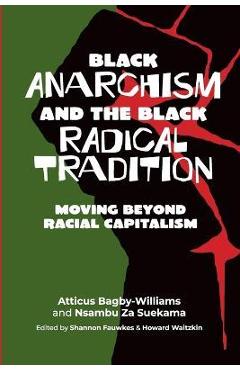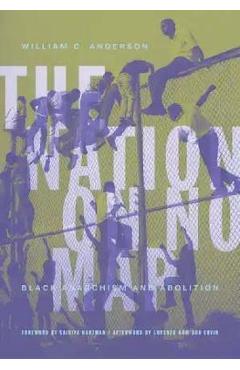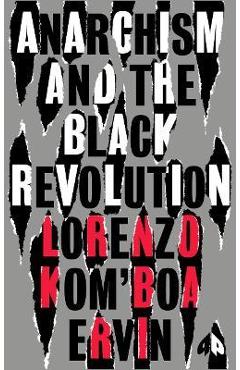Black Anarchism and the Black Radical Tradition: Moving Beyond Racial Capitalism - Atticus Bagby-williams

Detalii Black Anarchism and the Black
libris.ro
103.98 Lei
115.53 Lei
Political Science
Atticus Bagby Williams
Black Anarchism and the Black - Disponibil la libris.ro
Pe YEO găsești Black Anarchism and the Black de la Atticus Bagby Williams, în categoria Political Science.
Indiferent de nevoile tale, Black Anarchism and the Black Radical Tradition: Moving Beyond Racial Capitalism - Atticus Bagby-williams din categoria Political Science îți poate aduce un echilibru perfect între calitate și preț, cu avantaje practice și moderne.
Preț: 103.98 Lei
Caracteristicile produsului Black Anarchism and the Black
- Brand: Atticus Bagby Williams
- Categoria: Political Science
- Magazin: libris.ro
- Ultima actualizare: 28-10-2025 01:22:05
Comandă Black Anarchism and the Black Online, Simplu și Rapid
Prin intermediul platformei YEO, poți comanda Black Anarchism and the Black de la libris.ro rapid și în siguranță. Bucură-te de o experiență de cumpărături online optimizată și descoperă cele mai bune oferte actualizate constant.
Descriere magazin:
Black Anarchism and the Black Radical Tradition deals with three distinct radical orientations: the anarchist movement in Europe and the United States, the Black Radical Tradition, and Black anarchism. Importantly, Black anarchism owes more to the Black Radical Tradition than the European anarchist movement. Often, Black anarchists are not acknowledged within the Black Radical Tradition for their contributions to revolutionary theory as well as struggle. We seek to change that by discussing Black anarchist theorists and to shed light on the resonances and differences among them.We are in the midst of the largest Black uprising since the 1960s. Increasingly, the resonances between anarchist struggle and Black rebellion (with a common enemy in the capitalist state) are becoming clear. Over the past ten years, within radical networks and academic milieus, there has been renewed interest in clarifying these resonances. The Black Radical Tradition, as coined by the late great Black scholar Cedric Robinson, and its interactions with U.S. anarchism are what this project is attempting to map and explain. Our book engages with two waves of Black anarchists, including Kuwasi Balagoon, Lorenzo Kom\'boa Ervin, and Ashanti Alston in the first wave, and Zoe Samudzi, William C. Anderson, and the Anarkatas in the second wave. We investigate why there has been dissonance between anarchists and Black radicals, partly by engaging relevant work and thought of anarchists such as Emma Goldman and David Graeber. The book makes the argument that anarchist theory can be stretched\' to Black people in the United States and other countries, in the way that Frantz Fanon stretched Marxism to the Global South. Black anarchism is not simply anarchism being practiced by people who are Black, but rather a tradition of autonomy, mutual aid, and militant resistance that emerges out of Black historical struggle. It is clear there are resonances between Black radicalism and anarchism, especially in the wake of the great uprising of 2020. In this project, we seek to clarify those resonances. Black anarchism needs to be written and understood partly as a theoretical project and partly as a project of radical political action.There has been a renewed interest in Black anarchism. Books such as As Black As Resistance or Anarcho-Blackness published in the past couple of years show that interest. However, our book differs in several ways. Importantly, we seek to engage more directly and to critiq

Produse asemănătoare

The Nation on No Map: Black Anarchism and Abolition - William C. Anderson
![]() libris.ro
libris.ro
Actualizat in 28/10/2025
83.7 Lei

Anarchism and the Black Revolution: The Definitive Edition - Lorenzo Kom\'boa Ervin
![]() libris.ro
libris.ro
Actualizat in 28/10/2025
99.39 Lei

Jump. Black Anarchism and Antiblack Carcerality, Paperback/Sam C. Tenorio
![]() elefant.ro
elefant.ro
Actualizat in 28/10/2025
173.99 Lei

Black Anarchism and the Black Radical Tradition: Moving Beyond Racial Capitalism - Atticus Bagby-williams
![]() libris.ro
libris.ro
Actualizat in 28/10/2025
103.98 Lei

Anarchism and the Black Revolution. The Definitive Edition, Paperback/Lorenzo Kom\'boa Ervin
![]() elefant.ro
elefant.ro
Actualizat in 27/10/2025
108.99 Lei
Produse marca Atticus Bagby Williams

Black Anarchism and the Black Radical Tradition: Moving Beyond Racial Capitalism - Atticus Bagby-williams
![]() libris.ro
libris.ro
Actualizat in 28/10/2025
103.98 Lei